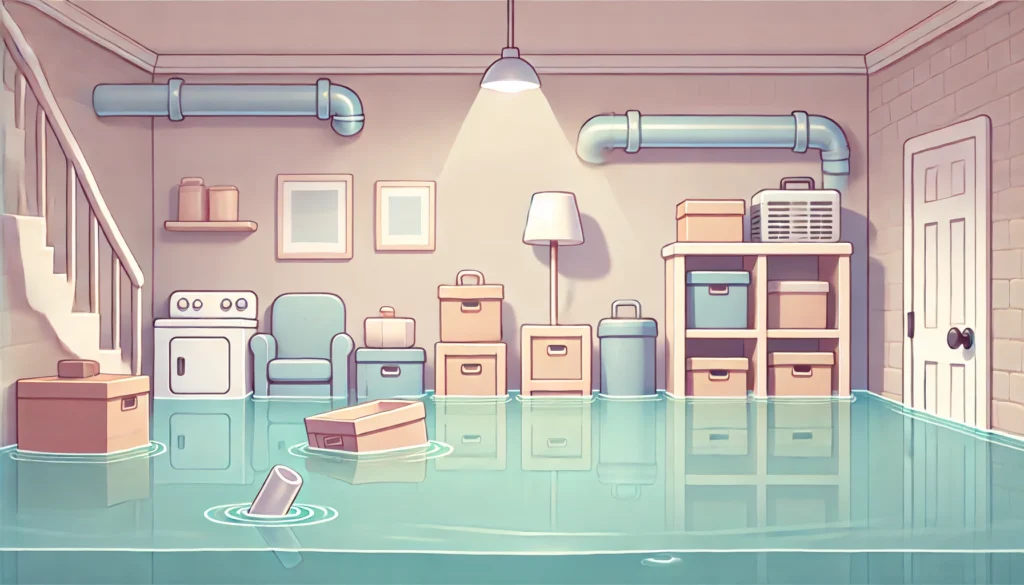How to Prevent a Flooded Basement: Essential Plumbing Tips for Homeowners

A flooded basement is one of the most devastating home disasters a homeowner can face. Beyond the obvious water damage, a flooded basement can lead to mold growth, structural issues, and costly repairs. Many basement floods are the result of preventable plumbing problems like clogged drains, failing sump pumps, or a blocked main sewer line.
At Sewer23, we know how critical it is to protect your home from water damage. That’s why we’ve compiled these essential plumbing tips to help you prevent a flooded basement and keep your home safe. Whether you’re searching for “plumber near me” or need advice on main sewer line snaking, this guide will cover the key steps to avoid costly water damage.
If you’re already facing an emergency, don’t hesitate to call us at (248) 993-3423 for fast and reliable service!
1. Regularly Inspect and Maintain Your Sump Pump
Your sump pump is the first line of defense against basement flooding. It’s designed to pump excess water away from your home, but if it’s not working properly, you could end up with a flood on your hands.
- Test Your Sump Pump: At least once a year, test your sump pump by pouring a bucket of water into the sump pit. If the pump activates and drains the water efficiently, it’s working as it should. If not, you may need repairs or replacement.
- Backup Power: Since heavy storms can lead to power outages, it’s smart to have a battery backup for your sump pump. This ensures that your pump will keep running even if the power goes out.
If you’re not sure how to maintain your sump pump or need help with repairs, call Sewer23 for assistance at (248) 993-3423.
2. Clean Your Gutters and Downspouts
Clogged gutters and downspouts can lead to water pooling around your foundation, which increases the risk of a flooded basement. When rainwater has nowhere to go, it seeps into your basement, potentially causing damage to your walls, floors, and foundation.
- Check for Blockages: Regularly inspect and clean your gutters, especially in the fall when leaves can easily clog the system. Ensure that downspouts are clear and positioned to direct water away from your home.
- Extend Downspouts: To prevent water from collecting near your foundation, install downspout extensions that carry rainwater at least 6 feet away from the house.
Preventing water buildup around your foundation is key to avoiding basement floods.
3. Prevent Clogged Drains and Sewer Backups
A main sewer line backup is one of the most common causes of basement flooding. Clogs in the sewer line can lead to raw sewage backing up into your home, causing a health hazard and extensive damage.
- Watch What Goes Down the Drain: Avoid flushing items like wipes, paper towels, or feminine hygiene products, as these can clog the sewer line. In the kitchen, avoid pouring grease, oils, or food scraps down the sink. Instead, dispose of these items in the trash.
- Tree Roots and Sewer Lines: Tree roots are a common cause of sewer line blockages. They can infiltrate the sewer pipes and cause significant damage. If you suspect tree roots may be affecting your sewer line, Sewer23 can perform main sewer line snaking to remove the blockage.
For help with routine drain cleaning or clogged drain repair, call Sewer23 at (248) 993-3423.
4. Install a Backwater Valve
A backwater valve is a device that prevents sewage from backing up into your home’s basement. If your area is prone to heavy rains or if your home sits at a low elevation, installing a backwater valve can be a lifesaver.
- How It Works: The backwater valve allows wastewater to leave your home but closes if sewage tries to flow back in. This prevents raw sewage from entering your basement in the event of a sewer backup.
- Professional Installation: If you’re interested in installing a backwater valve, a professional plumber from Sewer23 can help. Give us a call at (248) 993-3423 to learn more.
5. Schedule Regular Drain and Sewer Line Inspections
Routine inspections are key to preventing a flooded basement. Over time, debris, tree roots, and corrosion can affect the flow of water in your plumbing system, leading to clogs and backups. By scheduling regular inspections, you can identify potential issues before they turn into major problems.
- Drain Inspections: Have a plumber inspect your drains and sewer line annually, especially if you live in an older home. Sewer23 uses advanced camera technology to inspect your main sewer line and identify any blockages or damage.
- Hydro Jetting: For stubborn blockages or grease buildup, hydro jetting is an effective solution. This process uses high-pressure water to clear out clogs, ensuring that your drains and sewer line stay in top condition.
Call Sewer23 at (248) 993-3423 to schedule a thorough plumbing inspection.
6. Ensure Proper Grading Around Your Home
The slope of the ground around your home’s foundation plays a big role in preventing a flooded basement. If your yard slopes towards your home, water can pool around the foundation and eventually seep into your basement.
- Check the Grading: Walk around your home and check the ground level near the foundation. The soil should slope away from the house to direct water away.
- Regrading: If you notice areas where water is pooling, you may need to add soil to create a proper slope. In more severe cases, professional regrading may be necessary to prevent future flooding.
7. Be Prepared for Plumbing Emergencies
Even with all the preventive measures in place, plumbing emergencies can still happen. When they do, having a trusted emergency plumber on call is essential. A burst pipe, clogged drain, or sewer backup can lead to a flooded basement in a matter of minutes, so quick action is key.
At Sewer23, we offer 24/7 emergency plumbing services to handle any disaster, from clogged drains to full sewer line repairs. Save our number (248) 993-3423) so you’re always prepared when an emergency strikes.
Conclusion:
Preventing a flooded basement is all about taking proactive steps to maintain your plumbing system. From keeping your sump pump in good working order to scheduling regular drain cleanings and sewer line inspections, these tips will help you avoid costly water damage and ensure your home stays safe and dry.
If you need help with drain cleaning, clogged drain repair, or main sewer line snaking, trust the experts at Sewer23. Our professional team is here to handle all your plumbing needs, whether it’s a routine inspection or an emergency repair. Call us at (248) 993-3423 to schedule your service today!
Why Sewer23™
- Flat Rate Pricing
- No Overtime Charge
- Locally Owned
- Same-Day service
Our Services
- Sewer & Drain Cleaning
- Camera Inspection
- Plumbing Repairs
- Sewer Line Repairs
- Flood Water Removal
- Sump Pump Repair
- Water Tank Repair
24 Hour Service
Available 24/7 for Flooding Emergencies, Clogged Drains, and Broken Water Lines.

